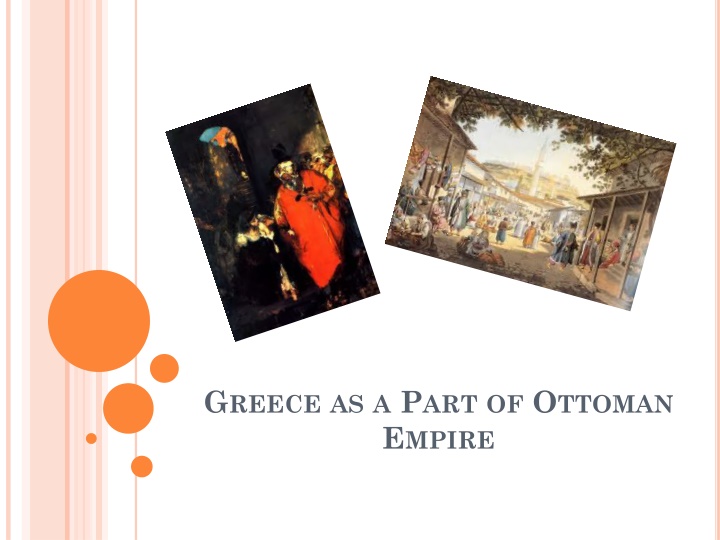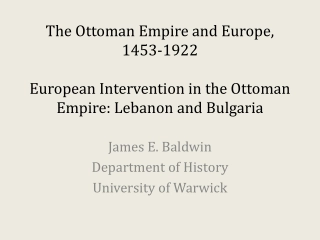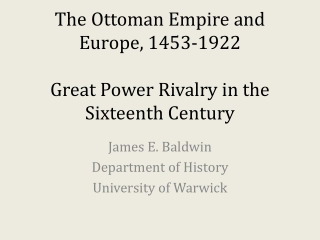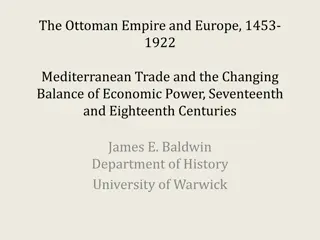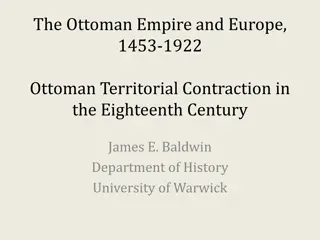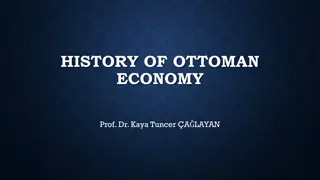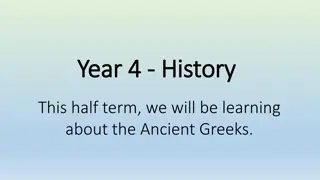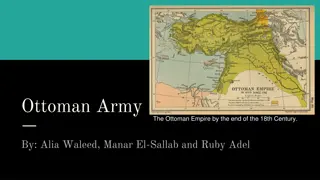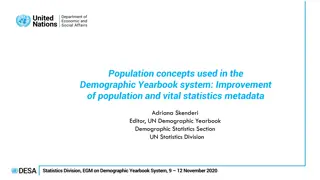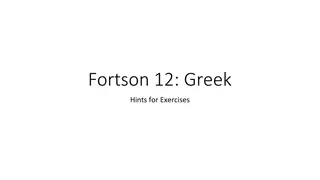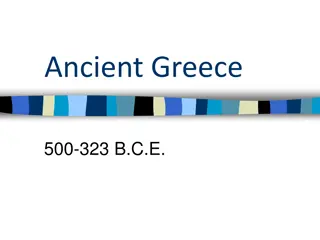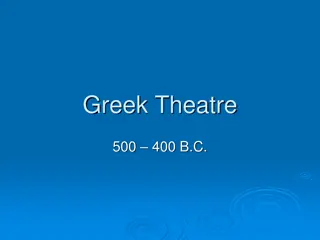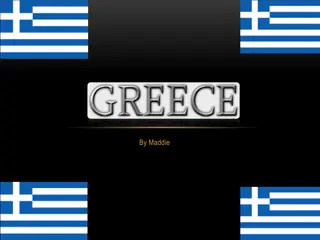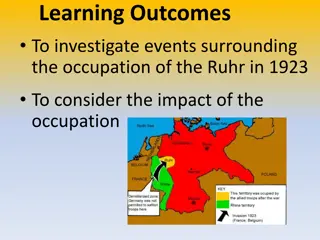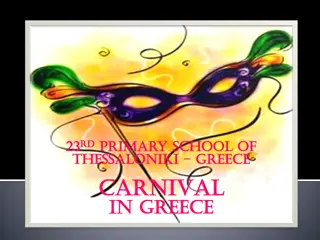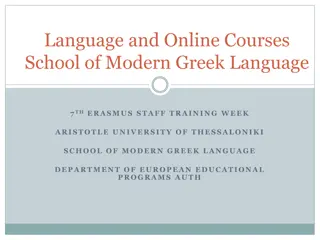Ottoman Occupation of Greece and Its Impact on the Greek Population
The Ottoman occupation of Greece brought about significant challenges for the enslaved Greek population, including heavy taxes, mass kidnappings of children, danger of violent Islamization, and the closure of Greek schools. Despite these difficulties, enforcement factors such as traditions, development of trade, and national unity through language and religion played a role in resisting Ottoman rule. Privileged groups like the Patriarch and Phanariotes had specific roles, while false attempts of revolution and spots of resistance marked the struggle against Ottoman authority.
Download Presentation

Please find below an Image/Link to download the presentation.
The content on the website is provided AS IS for your information and personal use only. It may not be sold, licensed, or shared on other websites without obtaining consent from the author.If you encounter any issues during the download, it is possible that the publisher has removed the file from their server.
You are allowed to download the files provided on this website for personal or commercial use, subject to the condition that they are used lawfully. All files are the property of their respective owners.
The content on the website is provided AS IS for your information and personal use only. It may not be sold, licensed, or shared on other websites without obtaining consent from the author.
E N D
Presentation Transcript
GREECE AS A PART OF OTTOMAN EMPIRE
OTTOMAN OCCUPATION Difficulties of enslaved Greeks: o Heavy taxes, such as: - Capitation ( charatsi ), tax on human life of enslaved population - Tithe, giving one tenth of agrarian production to state o Mass kidnapping of children, specifically of 6-7 year-old boys, in order to become dedicated Muslim soldiers (janissary) o Most fertile lands in Turkish hands o Constant danger of violent islamization Existence of Crypto-Christians o Closure of Greek schools Escape of Greek intelligentsia to the West
OTTOMAN OCCUPATION Enforcement factors: o Traditions & myths about the day of freedom Folk songs with similar content o Development of trade Peddlers Caravans, caravan-sarays & khans o National union through language and religion - Significant enforcing role of Orthodox Church - Basic Greek education through monasteries & priests ( Secret School ) o Preservation of communal administration system
OTTOMAN OCCUPATION Privileged groups: o Patriarch: Transferred to Fener district of Constantinople, closer to Greek population Recognized as religious & national leader of Greek nation Responsible for loyalty of Greek population to Ottoman authority o Elders ( proestoi ): Local noble leaders Responsible for collecting taxes & reassuring peace in the area
OTTOMAN OCCUPATION o Phanariotes: Educated Greeks, raised in Fener Usually translators of Great Gate or governors of Danubian Principalities (Moldavia & Wallachia) o Greek Diaspora: Greek emigrants living in big European centers (Vienna, Odessa, Bucharest, etc.) o Klephts: Greek guerillas against Ottoman authority o Armatoloi: Greek warriors responsible for local peace, though many times helping klephts
OTTOMAN OCCUPATION False attempts of revolution, usually based on wished help by Orthodox Russian Empire (traditional enemy of Ottoman Empire) 1769-1770 AD Orlofica (the most important attempt of all) Spots of resistance in inaccessible locations, such as Souli, Mani & Sfakia
GREEK AREAS UNDER LATIN OCCUPATION Occupation of Crete, Cyprus, Ionian & Aegean Islands by Italian marine & mercantile forces (Genoa, Venice, etc.) Poetry & theatre written in local dialect (e.g. Erotokritos - https://www.youtube.com/watch?v=0 TY0QeCGcWE - etc.) Hagiography ( Theophanes the Cretan & Michael Damaskinos, teacher of El Greco)
MODERN GREEK ENLIGHTENMENT 18th- 19thc. AD Literal movement of Modern Greek Enlightenment, aiming to education of Greek nation, in order to regain its freedom Foundation of Greek schools & teaching of Greek language Publication of Greek books in centers of Greek Diaspora (Vienna, Odessa, etc.) Declarations of significance of education, freedom, equality & democracy
MODERN GREEK ENLIGHTENMENT Representatives: o Adamantios Korais (establisher of puristic Greek language - katharevousa ) o Eugenios Voulgaris o Kosmas of Aetolia o Rigas Feraios (dreamer of independent, democratic Balkan Federation)
